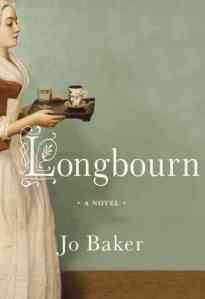“There was so much to be thankful for: there was pleasure in her work, in the rituals and routines of service, the care and conservation of beautiful things, the baking of good bread and the turning of rough, raw foods into savoury and sustaining meals…And yet, and yet, the feeling still could not be quelled…Would she, at some time, have the chance to care for her own things, her own comforts, her own needs, and not just for other people’s? Could she one day have what she wanted, rather than rely on the glow of other people’s happiness to keep her warm?”
And so is the premise of Jo Baker’s ‘Longbourn.’
Baker’s book invites readers into the underbelly workings of the famed Bennet home, Longbourn, and into the daily lives of the servants who kept it running. This is what Jane Austen could not set to paper in ‘Pride and Prejudice’: war, slavery, brutality, homosexuality and illicit affairs between masters and servants. In her book, Baker gives names and lives to the unnamed servants in P&P: Mr. and Mrs. Hill, Sarah, James, Polly and Ptolemy.
It is Downton Abbey meets Pride and Prejudice, and Downton Abbey comes out winning. Not only do readers sympathize with the servants– their longings, frustrations, fears and unrequited loves–but with Mr. Collins and even Mrs. Bennet. On the other hand, the Bennet girls (yes, even Elizabeth) come out looking like the privileged, social brats they likely would have been if the story were real.
Of course there is a love story. And while it doesn’t work out as nicely as the Darcy’s and Bingley’s did (tied up perfectly with ribbon and shoe roses), I wish Baker would have taken a different turn to maintain the grittiness and reality of the book.
I haven’t quite yet made up my mind if Baker’s book takes the magic out of P&P; but for certain, I will never read Austen’s classic again without thinking of the servants in Longbourn.

Leave a comment